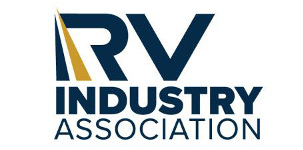The RV Industry Association (RVIA)’s Government Affairs team shared its 2024 federal legislative priorities. Main goals for the year include:
- Reauthorizing the Generalized System of Preferences
One of the Government Affairs’ team’s biggest priorities is the retroactive reauthorization of the Generalized System of Preferences, the longest-running U.S. trade preference program.
Since the program lapsed at the end of 2020, the RV industry has paid an estimated $1.5 million in duties each month. The most important of these lapsed duty-free goods is Indonesian lauan, a type of plywood that is not domestically grown and for which no domestic substitute exists.
A retroactive reauthorization would allow RV companies to recoup these costs, especially regarding lauan. The Government Affairs team is advocating for a six-year renewal term.
- Reforming Competitive Need Limitations Through the CNL Update Act
Competitive Need Limitations (CNLs) are built-in import ceilings under the Generalized System of Preferences. They eliminate duty-free access to the U.S. markets that exceed them, even if there is no domestic alternative or concerns that imports harm a U.S. industry. Benefits terminate when imports of a certain product from a certain country either account for 50% or more of the value of total U.S. imports of that product or exceed a certain dollar value, which increases by $5 million annually. The 2023 cap was $210 million. These limits hurt products like lauan.
In response to this issue, the Government Affairs team continues to advocate for the Competitive Need Limitations Update Act. This would establish a ceiling limit of $600 million dollars and introduce a sensible 5% annual growth provision. Additionally, the CNL Update Act removes the 50% volume threshold entirely. These policies would benefit American companies and importers.
- Passing the Outdoor Recreation Package
This package, also known as the Expanding Public Lands Outdoor Recreation Experiences (EXPLORE) Act and America’s Outdoor Recreation Act (AORA) in the Senate, passed the House Natural Resources Committee unanimously in mid-January. The act also passed out of the Senate Energy and Natural Resources Committee in May of 2023. This historic bipartisan effort, which is now awaiting full House and Senate vote, has brought together all sectors of the $1 trillion outdoor recreation industry.
This legislation is the first of its kind and features comprehensive proposals aimed at bolstering outdoor recreation and camping opportunities. Among many other provisions, the act will provide gateway community businesses, including campgrounds, with entrepreneurial training, technical assistance, low-interest business loans and loan guarantee programs. It will also expand public lands shoulder seasons to create more RVing opportunities, improve campground connectivity, and more.
The Government Affairs department, in cooperation with the Outdoor Recreation Roundtable (ORR) continues to advocate for the passage of the outdoor recreation package.
- Passing the Travel Trailer and Camper Tax Parity Act
The definition of motor vehicle in the federal tax code inequitably impacts certain segments of the RV industry. While floorplan financing interest charges on motorhomes remains fully deductible, towables – which make up 85% of RVs – are now limited to deductions of only 30% of interest expenses based on earnings before interest and tax. This is unfair and was not the Congressional intent behind changing the definition of motor vehicle.
The Government Affairs team continues to urge Congress to pass House and Senate Travel Trailer and Camper Tax Parity legislation. Progress was made on this issue during the summer and fall of last year; most notably, Reps. Rudy Yakym and Dina Titus reintroduced the legislation in May while Sens. Joni Ernst and Angus King introduced a similar fix in November. The Government Affairs team thanks them for their support and looks forward to continued momentum on this issue this year.
- Monitoring Regulatory Proposals
In addition to the above priorities, the federal affairs team is consistently monitoring federal regulatory proposals to ensure there is no risk of undue burdens on the RV industry. The Government Affairs team also makes sure federal regulators, such as the Department of Energy and others, are aware of the uniqueness of the industry and its needs.
